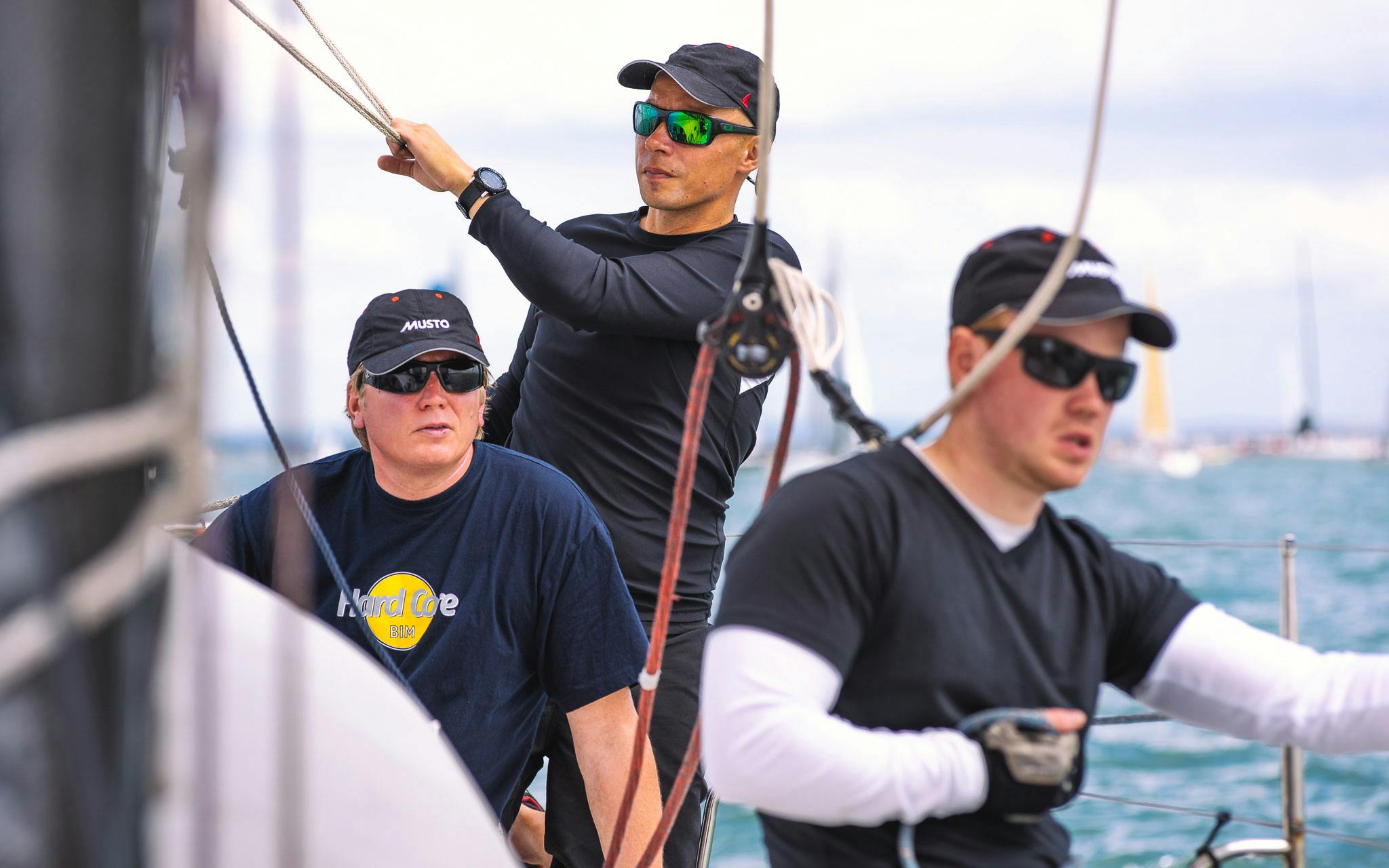Made in Mänttä
It was one of those long Scandinavian summer nights on which the sun does not so much set as smudge into the horizon, defiantly offering a warm glow long after it should have ceded control to the night. On this night in 2002, Perttu couldn’t quite believe this scene playing out in his small Finnish hometown of Mänttä. The lakeside restaurant where he and his high-school classmates had gathered for their reunion was abuzz with reminiscent chatter. Now all grown up, his once precocious friends calmly joked about thinning hairlines, their big Nokia cell phones hanging off their belt holsters in the champagne light. And just as at every reunion, the attendees accentuated their accomplishments in subtle and not-so-subtle ways. Some took out pictures of their children, others counted off proverbial rungs on the corporate ladder that they had climbed in the intervening years.
But as Perttu looked out at the cloudless sky bouncing off the windless lake, he realized there was another attendee showing off more than the others: the town itself. Perttu’s realization solidified when he started speaking to a classmate who had become a pianist after graduating. The friend talked about having organized a music festival in Mänttä and that some of the best musicians in the country were attending. The comment arrested Perttu’s attention because the very idea of a festival — for which well-to-do people sought Mänttä out instead of fleeing it — would represent a notable historic shift.
Bankruptcy
The town’s small size and remote location would have been enough to make a music festival unlikely. The area is so sparsely populated that when Perttu first attended primary school in a nearby village, the building only had two classrooms. The first and second graders were taught in one and the other had to accommodate all the rest. “It was really cozy,” Perttu chuckles.
But it was not just the size of Mänttä that made such a story unlikely. A local recession in the 90s had left many Finnish small-town economies arthritic and headed toward post-industrial decline. Mänttä, a town that was once a job provider because of its paper mill, was not spared. Over the course of fifteen years, Perttu would watch countless friends and neighbors move out of town as the employment tide receded, ultimately reducing the population by almost 30 percent.
Perttu’s father wasn’t spared either. He went bankrupt — an event that left a lump of shame in Perttu’s stomach as the family watched their home disappear in the rear-view mirror one afternoon. They had to move out of their beloved house, also flanked by a lake, into a smaller one that was further away from the forest Perttu had grown accustomed to. “It felt like we were unsuccessful.”
Didn’t Give Up
Besides the new house, other signs of the altered situation became noticeable. He remembers Christmases in which wrapped hand-me-downs from friends and family became the norm. But none of this bothered him too much. “We didn’t give up.”
Within the family, he remembers a slight surge of adventure. His father included him and his two brothers in a number of business ideas — one of which had to be registered in the children’s names because the bankruptcy precluded their serial entrepreneur father from owning a company. “I didn’t get that entrepreneurial drive,” Perttu says, comparing himself to his father. But try as they did, it was difficult for the family to keep speeding up while the macroeconomic treadmill slowed down. Ultimately the town factory would drastically reduce its output until only a small portion of the business — producing tissue paper — remained.
So hearing about this music festival in Mänttä felt particularly incongruous to Perttu. Its presence meant that somehow the town’s fortunes changed. Somehow they must have delayed the night.
Scared Shitless
“Perttu, can you come in here?” called Aarne Aktan, CEO of Quartal, a Finnish software company. Perttu walked into the office slightly disconcerted by the tone that Aarne, his longtime friend, boss, and mentor, was using. The office had both futuristic and retro elements: glass tiles on the wall lent the room a technology-inspired spaciousness while a giant vault, a relic from when the building was used as a bank, anchored the room to a more industrial past. Also standing in the room was the CEO of one of Quartal’s subsidiaries who, as Perttu soon heard, was about to leave the company to accept a job at Microsoft. Suddenly the purpose of the meeting was clear — Aarne offered Perttu the job.
Heading up the subsidiary, Quartal Content Management, would mean taking responsibility for 50 employees, many of whom would be older than the 27-year-old Mänttän.
“I was scared shitless!” he recalls. “For a day.” Wincing under the weight of the decision, he asked to sleep on it and went swimming that night to clear his head.
Breadth First
The job offer was the culmination of a career that was impressive but by no means inevitable. On the one hand, Perttu always had a strong drive. He earned his BS in only two and a half years and from one of the nation’s best programs, the Turku School of Economics, where he went on to complete his MS in Information Systems Sciences while working full-time. He had transformed his hobby of sailing into a skill that allowed him to compete in some of the world’s most esteemed yacht races: the Fastnet Race, Cowes Week, and 8mR World Champs. In 2011 he and his wife Inga took part in the Clipper Round the World Yacht Race, crossing the Indian Ocean past South Africa all the way through to Australia and New Zealand.
On the other hand, he found himself faltering when he first entered the working world. Fresh out of university, Quartal hired him as a programmer, but it soon became clear that his strengths lay elsewhere. “The first couple of weeks, I felt the sweat, “ he recalls. Work took longer than it should have as he didn’t show an aptitude for automating repetitive tasks or for writing clean code.
“They were kind enough not to kick me out,” he says, grateful for the response by Aarne Aktan, the man who allowed Perttu to change his focus from programming to business development. Under Aarne’s mentorship, Perttu began to flourish. He learned how to charm clients, how to draft compelling proposals and, above all, how to think like a customer. The mentorship became a partnership. A partnership that prided itself in being “self-assured but not cocky.”
Crafting Relationships
Buoyed by the strength of this relationship, Perttu emerged from the swimming pool, resolute to accept the job. “Let’s take on the challenge,” was his guiding thought. He became CEO of the subsidiary and proceeded to lead the company through a large variety of challenges and adventures. In the 15 years that followed, he would be involved in no fewer than five mergers and acquisitions. All the while he was strengthening his identity as a “digital craftsman” — a term he still uses fondly today.
The road didn’t end there. He would later take up positions as Business Development Director at Siili Solutions and then Chief Digital Officer at Pihlajalinna.
His guiding star throughout all the change has been strong relationships. The connections he established with people like Tom Jacobsson, Ville Kolehmainen, and Florian Plank would lead him to his current position at DK&A where he is taking the lead as Chief Commercial Officer. At DK&A, Perttu is charged with growing the business and developing offerings.
The Monopoly Man of Mänttä
The town of Mänttä owes much of what it is, the good and the bad, to one man: Gustaf Adolf Serlachius. The product of 19th-century fervor for industrial exploits, Serlachius — who had Rockerfellian levels of wealth — would try his hand at several business ventures, including a pharmaceutical company. Though many failed, in 1868 the aristocrat did manage to found the paper mill that gave birth to the town. The town lived off that boom for over 100 years. And after economic hardship that followed the decrease in mill production in the 1990s, the city’s eventual salvation would also come at the hands of Serlachius.
The transformation began in the late 1990s when Serlachius was long dead and only remembered in some black-and-white pictures in which he bears a striking (and not unfitting) resemblance to the monopoly man. The municipality accepted that it needed to reinvent itself in order to survive, so they played the only card left in the town’s hand: a large art collection that Serlachius had garnered as he traveled around the world like Phileas Fogg. With the collection, the town attempted to rebrand itself as an art hub and applied to be a “Capital of European Culture,” an accolade that allows a city to organize a series of cultural events with a strong pan-European slant. Though the formal application was unsuccessful, the initiative rallied the entire town around the common cause of renewal.
Mänttä’s Rebirth
Ironically, it was in failing to become an art hub that the town developed a reputation for being one. Within a few years, festivals would draw artists from around the world. And crowds with money would follow.
The town’s transformation felt complete when Perttu visited one of Mänttä’s festivals in 2017. The event was billed as the Food and Art Festival, which attracted five chefs who had been awarded Michelin Stars to cook for audiences. The night was opulent and dazzling, press flashes illuminating expensive dishes.
By then even town skeptics had to concede that something remarkable had happened. Now former residents brag about their association with the town, the way someone might if they came from a place like Glastonbury or Cannes.
A Place That Doesn’t Exist Anymore
Thinking about what allowed him to navigate the curves of his career, Perttu says coming from a place like Mänttä certainly helped. “It made me believe that anything is possible, even the craziest of ideas,” he says.
Perttu finds it amusing that, due to a bureaucratic technicality which saw his hometown merge with a nearby municipality in 2009, the city of Mänttä can no longer be found on maps.
An asymmetrical smile appears on his face as he remarks that strictly speaking, he’s “from a place that doesn’t even exist anymore.”

